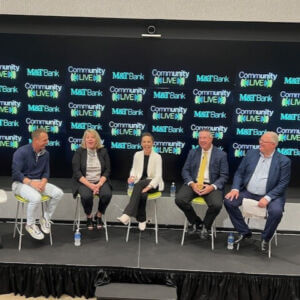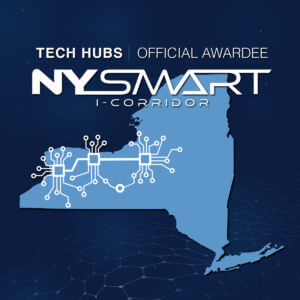8.10.21 Advocacy Alert: Senate Passes Bipartisan Infrastructure Bill
Blog Categories
August 10, 2021

What’s the latest?
This morning, the U.S. Senate passed a bipartisan infrastructure bill that will spend $1.2 trillion in total, including $550 billion in new spending.
The bill passed 69-30, with all Democrats and 19 Republicans voting in favor.
Some Republicans balked at the spending levels in the bipartisan bill, noting that the Congressional Budget Office predicted the bill would add $256 billion to the deficit over the next ten years. Supporters of the bill dispute this, claiming the CBO ignored many of the bill’s “pay for” provisions that finance these expenditures by repurposing existing revenue, not raising taxes.
The bill faces an uncertain future in the house. If the House GOP opposes the bill, four defectors from the 220-member Democratic conference would be enough to sink it.
Additionally, Speaker Nancy Pelosi has repeatedly stated she will not even bring the bipartisan bill to a vote in the House until the Senate passes a partisan budget bill that makes additional social investments. On Monday, Democrats released the budget resolution for this social spending plan, which has a $3.5 trillion price tag.
What’s in it?
The bipartisan infrastructure bill passed this morning includes:
- $110B in new spending on road & bridge repairs.
- $66B in new spending on rail, including Amtrak, Northeast Corridor upgrades, freight upgrades, and rail-highway crossing safety.
- $11B for highway and pedestrian safety.
- $39.2B for public transit system upgrades.
- $65B for broadband deployment and affordability.
- $17.3B for port and waterway improvements.
- $25B for airport runways, gates, terminals, and air traffic control.
- $55B for water and wastewater infrastructure.
- $73B for energy grid reliability and resiliency, and renewable technologies.
- $46B for “resiliency” efforts, including cybersecurity, waste management, and natural disaster preparedness & response.
- $15B for production and infrastructure for electric vehicles and low emission school buses and ferries.
What comes next?
The Senate could vote on the $3.5 trillion social spending package as soon as this week. Democrats need 50 votes to pass it, meaning losing support from any member of their caucus could jeopardize it.
If both bills pass, the House will consider both with votes expected in September. President Biden is expected to sign both bills once they reach his desk.
The BNP has long advocated for a bipartisan infrastructure agreement. Although this bill is imperfect, it provides the funding necessary to address numerous regional priorities.
The Senate’s passing of this bill is a significant step forward, and the BNP applauds Senator Schumer for his leadership on this issue.
The BNP will continue to keep you updated on the infrastructure package and the opportunities it creates.
Related Posts
Expert panel talks collaboration as key to tech hub future
Buffalo Niagara Partnership President & CEO Dottie Gallagher was a recent guest on M&T Bank’s CommunityLIVE to discuss the tech hub and what it means for the region moving forward.
BNP hosts NYS Assembly committee roundtable on the future of tech
The Buffalo Niagara Partnership, TechBuffalo and Microsoft hosted the New York State Assembly Science & Technology Committee for a roundtable discussion focused on equity, workforce and skilling for the tech future.
Building the Future: How the Federal Tech Hub Funding Will Transform Western and Central New York
The federal funding secured through the Tech Hubs program marks a turning point for Western and Central New York, presenting significant economic opportunities our region. This is just the start of what will be a transformative journey, and the Buffalo Niagara Partnership will continue leading the way with our partners in Rochester and Syracuse.
Buffalo-Rochester-Syracuse One Of Only 12 Winners From Across The Nation For Highly Competitive Federal Grant
After years of relentless advocacy and landing the prestigious federal Tech Hub designation for the Buffalo-Rochester-Syracuse that he created in his CHIPS & Science Law, U.S. Senate Majority Leader Chuck Schumer today announced the “NY SMART I-Corridor Tech Hub” was just selected as one of only 12 Tech Hub award winners in the nation, bringing a major $40 million in federal funding to further position Upstate NY as a semiconductor center for the world.



